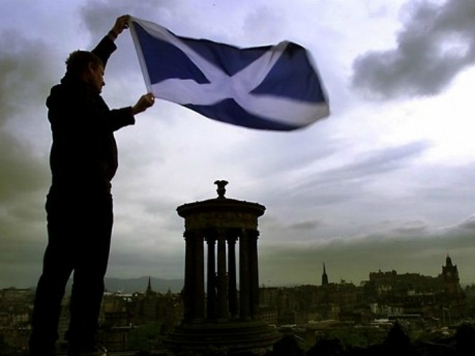An independent Scotland could have a disproportionately large banking sector compared to its economy, leaving it vulnerable to financial shocks, according to a study by The Banker magazine released Monday.
The trade publication found that Scotland would have banking assets 12 times the size of its gross domestic product (GDP), if banking assets registered in the country remained there were it to become independent.
This “presents a significant risk for the country’s economic stability”, The Banker said.
The study will add to debate between rival camps ahead of a September referendum on Scottish independence. Both Yes and No sides claim Scotland will be financially better off if their campaigns prevail.
The study estimated assets of Scottish-headquartered banks The Royal Bank of Scotland, HBOS and Clydesdale Bank to be $2.6 trillion, 12 times the size of a Scottish GDP figure posited at $219 billion.
Britain’s banks currently have a total of $9.9 trillion in assets, roughly four times GDP, while Iceland had a banking sector 10 times greater than its GDP before the collapse of the country’s financial sector, the study said.
The International Monetary Fund contributed to rescue packages for several small countries, including Iceland and Ireland, when their overextended banking sector.
The Scottish government rejected the study’s findings, saying it wrongly included London-based investment banking activity and failed to take into account reforms to the banking sector since the crisis.
A spokesman for the campaign against independence, Better Together, said the study “confirms that separation would present a significant risk to Scotland’s economic stability”.

COMMENTS
Please let us know if you're having issues with commenting.